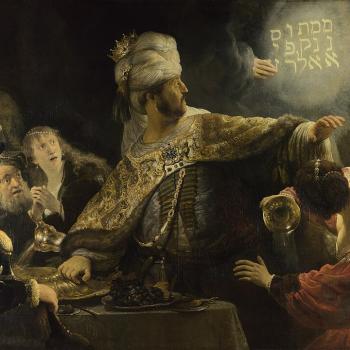The “vibes” election. Google is an illegal monopoly. And Hindu nationalists court American conservatives.
The “Vibes” Election
The contest between Harris/Walz and Trump/Vance is being described by a number of politicos and journalists as a matter of “vibes.” And thus far, Harris’s “brat” vibe and Walz’s “dad” vibe seem to be winning out over Trump’s angry vibe and Vance’s mean vibe.
Says the UK Guardian’s Sam Wolfson in his article Brats, dads and bravado: this US election will be decided on vibes,
This election is not being fought on proposed policies or past accomplishments. It’s being fought on vibes.
The vibes election is a kind of free-association game that takes place in the recesses of the deep subconscious. The goal is to determine not who the candidates are but who you feel like they could be if they weren’t politicians.
In the vibes election, huge political moments keep being superseded by online ephemera: Trump was almost assassinated by a sniper, but what resonated was how cool he looked in AP photos afterwards. Kamala Harris became the first Democratic nominee in modern times not to go through a primary process, but what really landed was Charli xcx tweeting “Kamala is brat”. Within minutes, Harris’s team changed their official campaign X header to brat green.
Steve Krakauer of The Hill puts it strongly in his article VPs and vibes: Walz vs. Vance in an election where reality doesn’t matter. He reports that according to several sources, a major reason that Tim Walz was chosen as Harris’s running-mate is that he said of Trump and Vance that “these guys are weird.”
He came up with the “weird” talking point that people seemed to enjoy on social media, so now he has a shot at being a heartbeat away from the presidency.
It wasn’t “revolutionary or sophisticated,” admits the Associated Press, but it was a “new framing” that just seemed to take off. He’s hired!
That’s where we seem to be landing as a culture during this absurd electoral cycle — coasting on vibes and vibes alone. A one “progressive Hill aide” told the liberal publication Talking Points Memo, “elections are about energy, and they’re about networks, and they’re about vibes. Walz was clearly the vibes candidate.” Politico declared that “Tim Walz passed the vibe check” in an email newsletter. “The Tim Walz vibe shift,” announced the Columbia Journalism Review.
There are issues at stake. Walz describes himself as a “Minnesota Lutheran” (more on that tomorrow), evoking the self-deprecating niceness of the Garrison Keillor vibe. Never mind that as governor of that state, Walz has imposed an “ethnic studies” theme in public school curricula–including in math and science–that its proponents describe as race-based neo-Marxism, “a practice of revolutionary agitation dedicated to uprooting and replacing the American system.” Or that Walz has changed Minnesota’s abortion laws to repeal the Born Alive Protection Act, which mandates that babies who survive abortion must be cared for, and even to repeal the law against coerced abortions!
Most mainstream voters, no matter how liberal, wouldn’t go as far as Walz does. But does that matter if he gives off good vibes?
“It’s all pathetic, of course, but also clarifying,” concludes Krakauer. “Nothing matters, and we’re in a vibe shift to nowhere in American politics.”
Google Is an Illegal Monopoly
A study of millions of Google searches found that 58.5% of searches in the United States do not result in a user clicking any of the links that turn up. That is to say, AI summaries, the “People also ask” feature, and article descriptions tell searchers all they need to know, so that they do not bother going to the sources. Furthermore, 30% of the links that are clicked go to Google-owned properties, such as YouTube and Google News. Of 1,000 searches, only 360 go to the “open web.”
Such dominance and, arguably, distortion of the internet led a federal judges to rule that Google is an illegal monopoly. The case, brought by the Department of Justice and virtually every state in the union, red and blue, argued that Google violated anti-trust law by suppressing competition. U.S. District Judge Amit Mehta in Washington, D.C., agreed, ruling that Google has paid billions of dollars to Apple, Samsung, Verizon, and other tech companies to be their default search engine, locking up 90% of internet search traffic.
What remedies the court plans to impose are not clear at this time, but will possibly involve breaking up Alphabet, Google’s parent company. Google plans to appeal.For the 277 page ruling, go here.
Hindu Nationalists Court American Conservatives
The very politicians from India who are courting Christian Nationalists in America are persecuting Christians at home.
A delegation from India’s ruling Hindu Nationalist party, Bharatiya Janata Party (BJP), spoke at the National Conservatism Conference. So reports Bethel McGrew in First Things in an article entitled Is Hindu Nationalism Friendly to Christianity?
The National Conservatism Conference has always featured an array of Judeo-Christian politicians, clergy, and lobbyists. But this year, Hindu nationalism made its debut at NatCon with speeches by Ram Madhav and Swapan Dasgupta, two leading voices in India’s Bharatiya Janata Party (BJP). Dasgupta proposed a “natural alliance” with Western conservatives who understand the importance of a unified national identity. Madhav’s speech declared that “we share most of the ideas that you, the NatCons, consider dear—God, religion, tradition, family, patriotism, nationalism.” Proudly presenting Indian conservatism as a political “success story,” both speakers expressed their hope that conservatism will enjoy a similar resurgence in the States.
This pitch is well-timed to coincide with Hinduism’s rising profile on the American right, where it coexists equably with Judaism and Christianity. Usha Vance, the wife of Republican vice-presidential nominee JD Vance, is a practicing Hindu, though she supports Vance in his Catholic faith. Former presidential candidate Vivek Ramaswamy attended a Catholic high school but now identifies as Hindu, which raised questions about his ability to capture Christian voters. To evangelical audiences, he emphasized that he still shared their “Christian values” and made “God is real” one of his oft-repeated “ten truths” on the campaign trail. Meanwhile, he made friendly overtures to Indian prime minister Narendra Modi, praising him as a potential strong anti-communist ally against China.
There is nothing wrong with extending religious tolerance to other faiths and welcoming their adherents to a political movement, as long as everyone avoids implying that all religions are equivalent.
But while they are courting Christians in the United States, in India, Narendra Modi and his BJP party are persecuting Christians! McGrew, referring to organizations affiliated with the BJP and the speakers at the National Conservatism conference cites case after case:
The most prominent terrorist group under its purview, the Bajrang Dal, was responsible for the 1999 mob burning of Australian missionary Graham Staines and his two young sons. Staines devoted himself to the care of lepers, whom he was accused of “proselytizing.” . . .
Like Graham Staines, India’s indigenous pastors and evangelists are frequently smeared with the accusation of “forced conversions” among poor communities, where Christianity is spreading especially fast. . . .
Today, the RSS is a powerful and well-oiled persecution machine, systematically training tribal leaders to beat, rob, and expel Christian villagers unless they revert to Hinduism.
McGrew concludes, “Indian Christians are threatening to Modi, while American Christians are useful.” For Christians, more important than the different varieties of “nationalism” is surely the union they have with fellow believers in the Holy Christian Church, including their brothers and sisters in India.

















